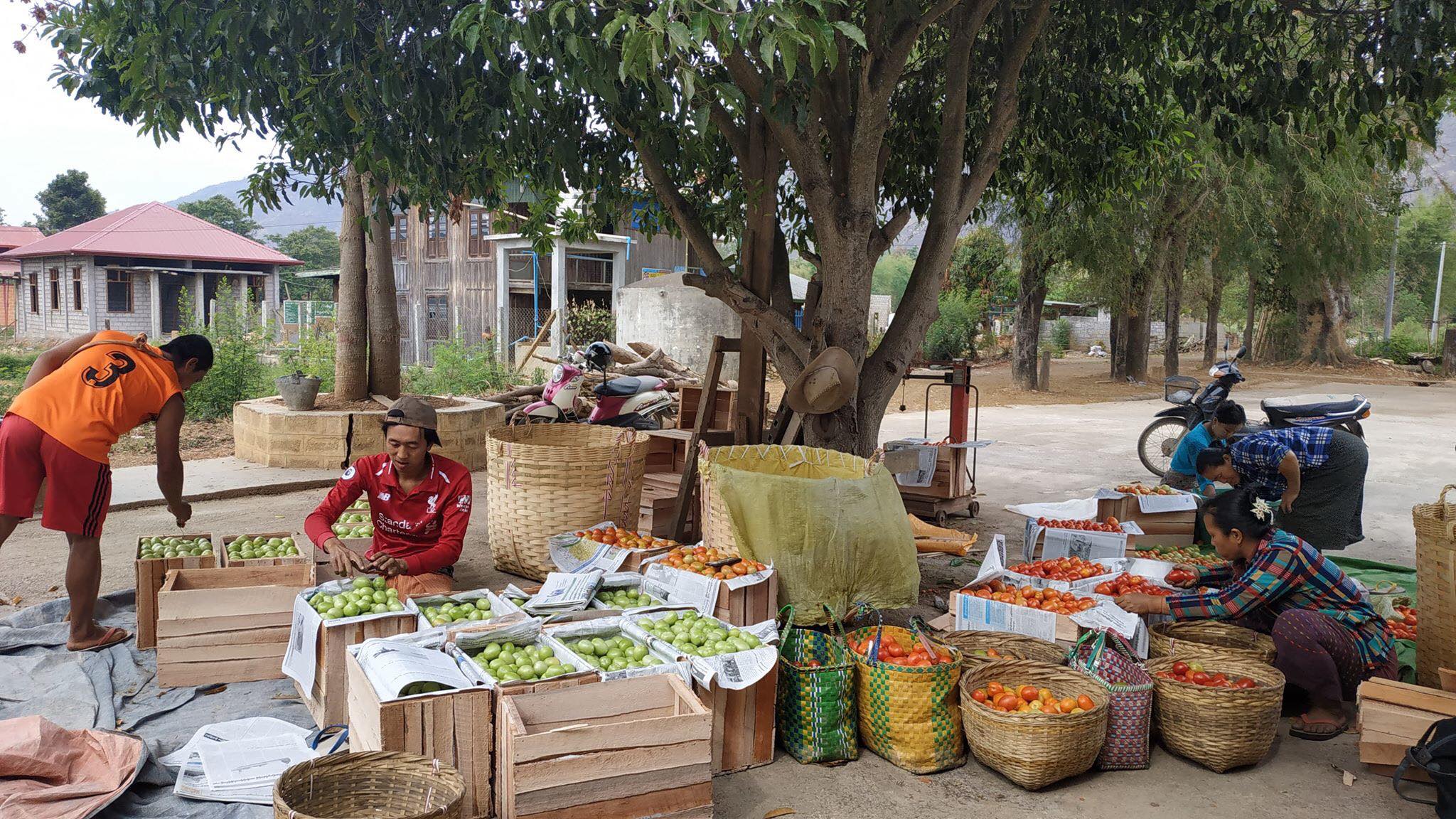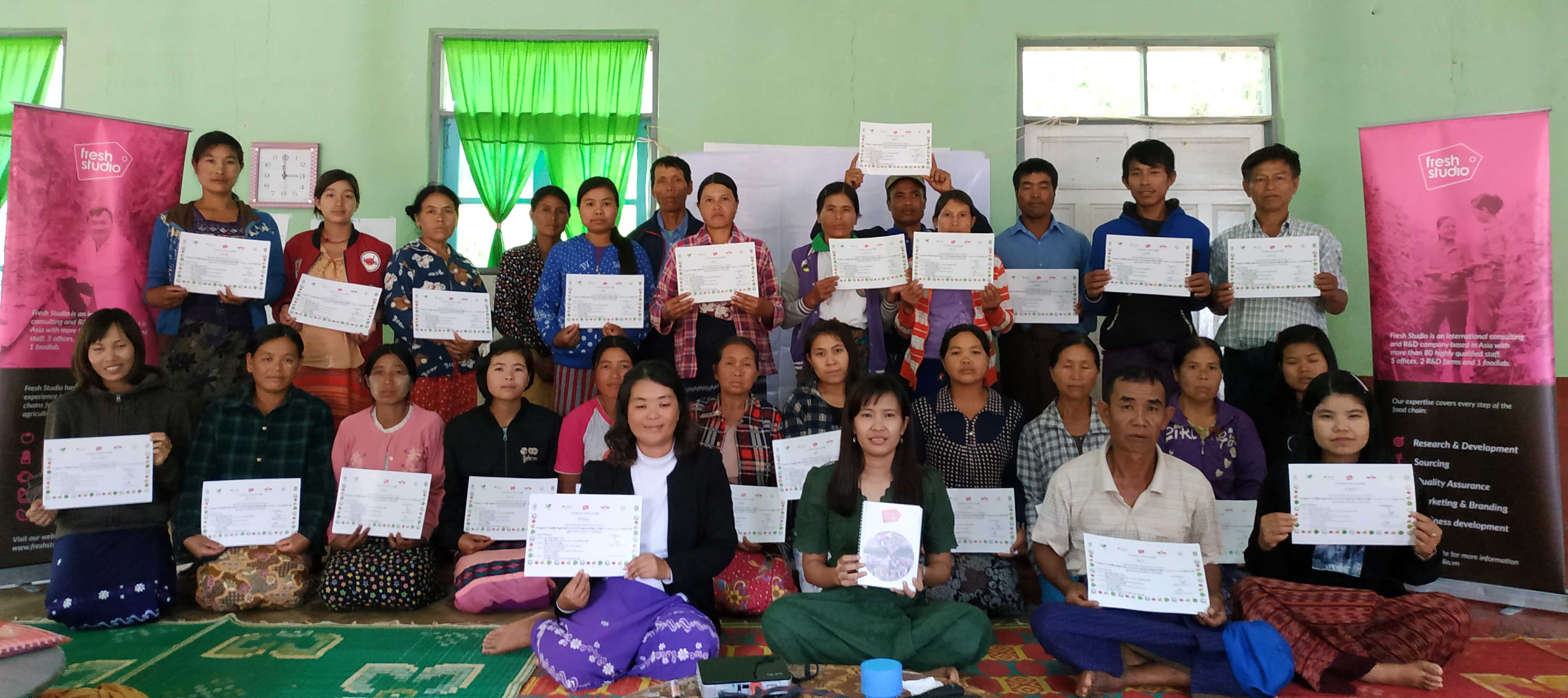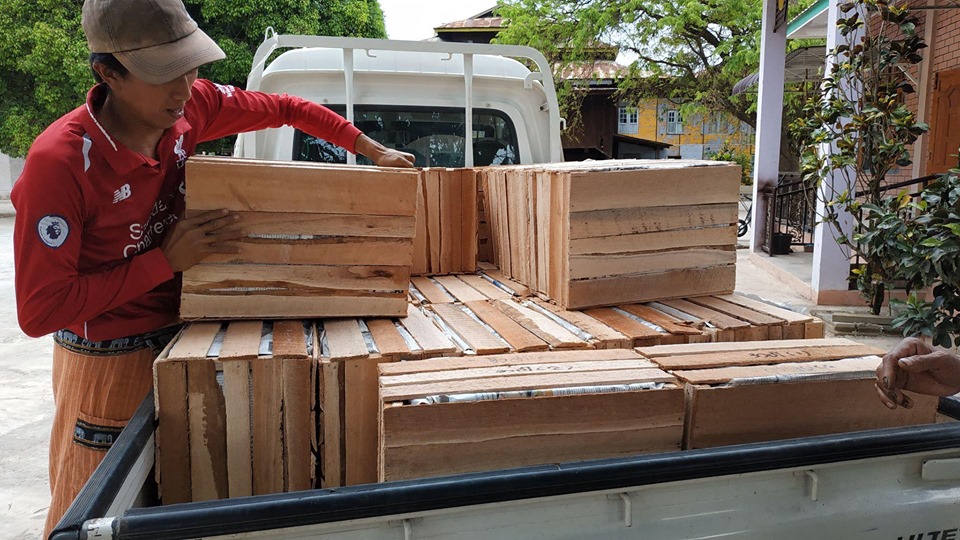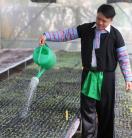New safe vegetable supply chain in Myanmar

Improved biosecurity practices and a new vegetable supply chain is tripling the income of rural tomato farmers in Myanmar by gaining access to high-value markets in the country’s largest city.
Established through an ACIAR-funded project run by Applied Horticultural Research, farmers from Taunbogyi village in the Southern Shan State delivered 900kg of tomatoes last week to retail markets in Yangon.
Grown in accordance with Good Agricultural Practice (GAP) protocols, ensuring crops are grown and handled to safety standards and in a way that excludes food-borne diseases and pathogens, the farmers were able to sell their tomatoes for A$0.34/kg, much higher than the typical farm gate price of A$0.10/kg.
The milestone is part of a wider effort across Myanmar and Vietnam to help farmers achieve the highest possible return for their produce, a major factor in further reducing poverty across the region.
The supply of vegetables to distant urban markets is a major barrier for many smallholder farmers, with city consumers demanding a high level of food safety often precluding many small-scale operators, who consequently opt to sell locally for less economic return.
The project’s leader, Dr Gordon Rogers, says farmers can gain even higher prices in the future due to their involvement in the project and the MyanmarGAP accreditation.

‘There is great potential for farmers to negotiate even higher prices because tomatoes delivered to the Yangon wholesale markets can reach A$1.30/kg at this time of year,’ says Dr Rogers.
‘The farmers who produced the tomatoes are certified MyanmarGAP suppliers. This means they use the best agricultural practices to grow and handle their crops and test them to ensure they do not contain toxic pesticide residues and are safe to eat.
'In addition to tomatoes, the Taunbogyi village farmers are also producing sweet pepper, which is similar to capsicum, and two farmer groups in the neighbouring village of Pindaya already grow cabbage, cauliflowers, snow peas and other crops and are certified suppliers under the MyanmarGAP program.’
The project is also engaging with the private sector, with Fresh Studio responsible for the training, certification and linking the farmers with the market, with local logistics company Future Glory helping transport the farmers' produce the 600km plus journey to Yangon.

The Yezin Agricultural University (YAU) is also playing an important role in the project, helping farmers to build skills by running farm-based trials to assess new vegetable varieties, improved crop establishment and expanding the range of crops that can be grown in the region.
The project has been running since 2017 and is funded through ACIAR’s Agribusiness Research Program, which aims to foster more inclusive agrifood and forestry value chains across the Indo-Pacific. The project is due to run until February 2021.



